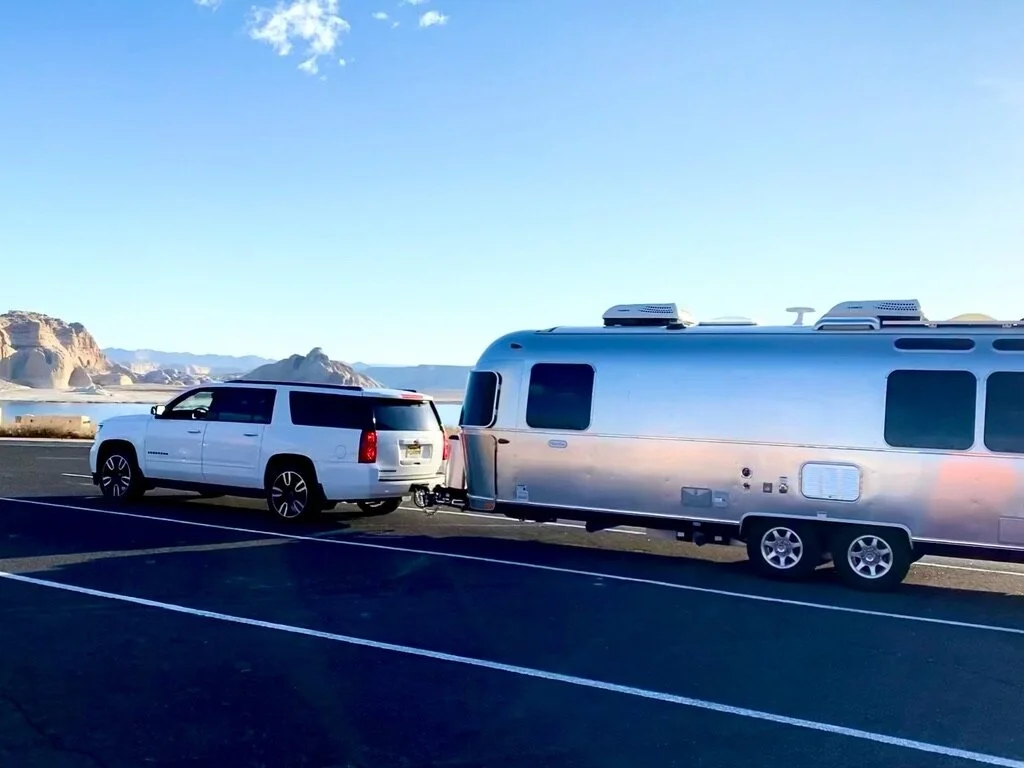RV vs Trailer:
So what are the differences between an RV and a Camper/Trailer… A lot of things.
An RV is a camper/car. You literally drive the all-in-one unit, it generally comes completes with a kitchenette, some type of dining situation that converts into a bed or beds, a small bathroom, a full/queen bed. There are varying lengths and super varying levels of elegance and class. RVs are better suited for solo travelers or mature couples.
A trailer or camper is something that attaches to your towing vehicle. You have to make sure your towing car has a towing capacity. You can’t just tow a trailer on any car. RVs put wear and tear on the engine and add miles on the odometer. High mileage for an RV is considered between 100,000 miles and 200,000 miles. On the other hand, trailers do no have an odometer, unless you choose to add a “hubodometer” to one of the tires of your trailer (no real reason to do this: it’s more for commercial or rental trailers).
My top three reasons that the trailer is for us/and probably better suited for families in general:
After eight hours on the road, desperate McDonalds stop, kids throwing their leftover nuggets on the ground, perhaps someone got carsick, maybe the dog pooped in the car… once you get to your destination all frazzle-dazzled, would you want to turnout around and sleep in this space? No, the answer is no. Instead, you get to all sleep in your unscathed trailer.
When you arrive at your camping location, you have the option of unhithcing your car and using it to explore the area. On the contrary, an RV requires you to “shut everything down” every time you move or drive the RV. Meaning, everything has to be put away and secured, dishes down, water dumped, tanks dumped, all toiletries tucked away. Pretty much how it feels to move out of an apartment. You have to remember everything, like the coffee pot, so that you don’t return from an adventure and have your whole RV tinged with coffee.
A trailer gives you more flexibility in parking, taking turns, length limitiations, etc. Because the trailer has the ability to “bend” - meaning, let’s say you have a 27’ trailer, and an 18’ towing vehicle, then add the tow hitch in between, you’re pretty close to a total length of 50’. Which is pretty close to the length of a classic school bus… which offers zero bend in the middle of it, making it really gnarly to park, maneuver turns, turn off on pull offs easily.
